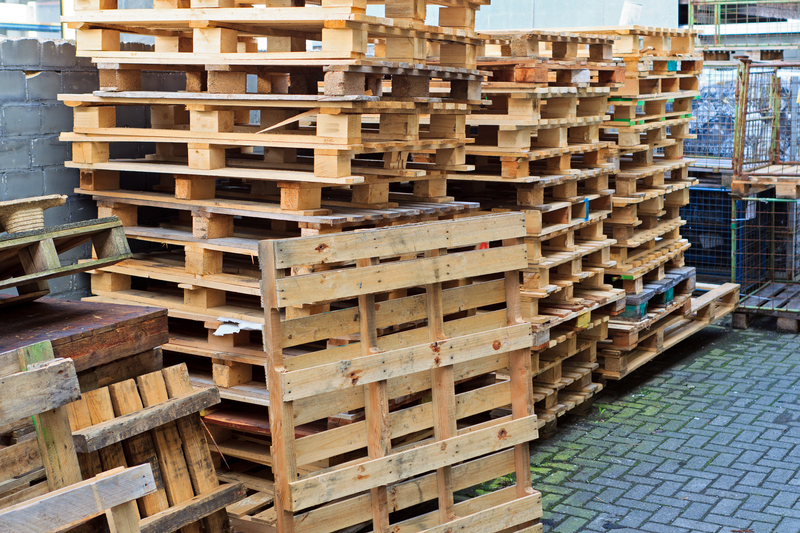Slash Your Expenses on Bulky Waste Item Disposal: The Complete Guide
Dealing with bulky waste item disposal can be both costly and challenging for many households and businesses. Whether you're renovating your home, moving, or simply decluttering, understanding how to manage and minimize these expenses is crucial. This comprehensive guide will walk you through strategies and tips to slash your costs on bulky waste removal, ensuring you make eco-friendly choices and save money.

What is Bulky Waste?
Bulky waste refers to items that are too large or heavy to be collected as part of your regular household waste. These typically include:
- Furniture (sofas, beds, wardrobes)
- Domestic appliances (fridges, washing machines, cookers)
- Mattresses and bed frames
- Electrical goods (televisions, computers)
- Garden waste (branches, old sheds, fences)
Because of their size, bulky waste items require special collection and disposal methods, which can quickly add up in terms of costs.
Why Bulk Waste Disposal Can Get Expensive
Many people underestimate the true cost of bulky waste disposal. Fees vary depending on your location and the type of service you choose, but can include:
- Local council charges for collection and disposal per item
- Commercial skip hire fees
- Private hauler or removal company rates
- Environmental levies for certain types of waste
On top of direct fees, there are often hidden costs such as time spent transporting items to a recycling center or the fuel consumed in multiple trips. Fortunately, there are several cost-effective methods to manage these expenses, which we'll explore in depth.
Top Strategies to Slash Your Bulky Waste Removal Costs
1. Use Free Collection Services Where Available
Many local councils offer free bulky item collection for a limited number of items each year. Check your local authority's website to see what services are available. This service is generally restricted to households only and often excludes items like commercial appliances or renovation debris, but it can be a great way to get rid of unwanted furniture or large goods at no cost.
2. Donate or Give Away Usable Items
Before you pay for bulky waste disposal, consider whether your items are still in good condition. Charities, thrift stores, and many community organizations will pick up unwanted furniture and working appliances for free. Try:
- Scheduling a charity collection (many offer online booking systems)
- Advertising items for free on online marketplaces (e.g., Gumtree, Facebook Marketplace, Freecycle)
- Donating to local shelters or community centers
Not only does this reduce your bulky item removal costs, but it's also an eco-friendly choice that benefits others.
3. Recycle Bulky Waste Responsibly
Many recycling centers accept bulky items for free or at a very low cost. Before you schedule a costly pick-up, check what your local facility accepts. Many centers have specific days or hours for bulky item drop-offs.
Towns and cities often hold "recycling events" where residents can dispose of large items at little to no cost. Stay informed about local events by subscribing to council newsletters or following community social media pages.
4. Pool Resources with Neighbors
If several neighbors are planning to dispose of bulky waste at the same time, coordinate a joint effort. By hiring a skip or removal service together, you can dramatically split the costs and save money.
- Rent a communal skip
- Schedule a group collection with a hauler
- Share transportation to the recycling center
5. Break Down Large Items Yourself
The cost of bulky waste disposal often depends on the size and weight of the items. By dismantling furniture, cutting up branches, or breaking down appliances (when safe to do so), you can often reduce the volume enough to fit items in your regular general waste or recycling bins. Smaller items are:
- Cheaper or free to take to recycling centers
- More likely to be accepted by council curbside collections
- Less expensive for private haulers to collect
Always check with your local authority for disposal regulations and safety tips before dismantling certain items.
6. Consider Haul-It-Yourself Options
Transporting your bulky items directly to your local landfill, recycling, or waste transfer station can be far cheaper than hiring a company for collection. Many centers allow personal drop-offs at reduced fees, especially for residents.
Before you go, call ahead to confirm accepted items and fees. Make sure you have:
- Sufficient vehicle space (ask friends or neighbors for a van if needed)
- Proper lifting equipment for safety
- Documentation to prove residency
7. Compare Quotes and Negotiate
If you need to hire a man-and-van bulky waste removal service or a private hauler, always:
- Request multiple quotes
- Be clear about the volume, weight, and types of items
- Ask for discounts for flexible scheduling or repeat business
- Negotiate on price - many small companies are willing to beat a competitor's rate
8. Utilize Council Special Waste Collections
Some councils provide special waste collection events apart from annual or regular free pick-ups. These are perfect times to get rid of large, awkward items at subsidized rates or for free. Check your council's waste services page regularly for updates.
9. Check For Employer or Membership Benefits
Certain organizations and large employers offer waste disposal perks or partnerships with local removal companies. If you're part of a trade union, housing association, or large company, inquire about available resources for discounted or free bulky waste collections.
Items to Watch Out For: Special Disposal Considerations
Some bulky items require special handling and may carry additional disposal costs:
- Refrigerators and Freezers: Require certified disposal because of hazardous coolants
- Mattresses: Many recycling centers charge extra due to processing costs
- Construction debris: Not usually accepted in household collections; may need specialist removal
- Electrical waste (WEEE): Needs proper recycling as per regulations
Always check with your council for rules on hazardous or specialist bulky waste.
Environmental Benefits: Why Eco-Friendly Bulky Waste Disposal Matters
Choosing sustainable disposal methods can further slash your costs while protecting the planet. Here's how:
- Donating or reusing extends the life of items, reducing landfill waste
- Recycling salvages valuable materials, sometimes earning you money (for metals and working electronics)
- Eco-friendly haulers often offer lower rates for sorted, recyclable goods
By supporting re-use and recycling, you not only minimize expenses but also contribute to a greener future.
Common Mistakes That Increase Bulky Waste Removal Costs
- Failing to research free or low-cost disposal options
- Not checking what local centers accept
- Removing items yourself but forgetting to factor in time and transport costs
- Paying for multiple collections instead of consolidating items
- Neglecting to ask for charity or community pick-up before paying
By planning ahead and using the strategies above, you can avoid these costly errors and keep your bulky waste costs low.

Quick Reference: FAQs on Bulky Waste Disposal Savings
How can I dispose of bulky waste for free?
Use your council's annual free collections, donate usable items, attend local recycling events, or give away items on online platforms.
Is it cheaper to hire a skip or a man-and-van?
For small to medium loads, a man-and-van is usually cheaper, especially for one-off items. Skips tend to be cost-effective for large renovation projects or joint endeavors with neighbors.
Can I put bulky waste in my normal wheelie bin?
Typically, no - but if you break down items so they fit and comply with your local garbage rules, you may be able to dispose of some smaller items this way. Always check the regulations first.
What happens if I dump bulky waste illegally?
Illegal dumping (fly-tipping) can result in hefty fines or prosecution. Always use authorized services for large waste.
Takeaway: Don't Overpay for Bulky Waste Disposal
Slashing your bulky waste item disposal costs is easier than you think. Plan ahead, make smart use of available resources, and choose eco-friendly methods wherever possible. By combining these strategies, you'll save money, time, and help the environment--all without the stress of unwanted clutter.
Want even more tips on cutting your bulky waste removal expenses? Bookmark this guide and revisit ahead of your next big clear-out! Share your best cost-saving stories or ask any questions on local disposal services below.
